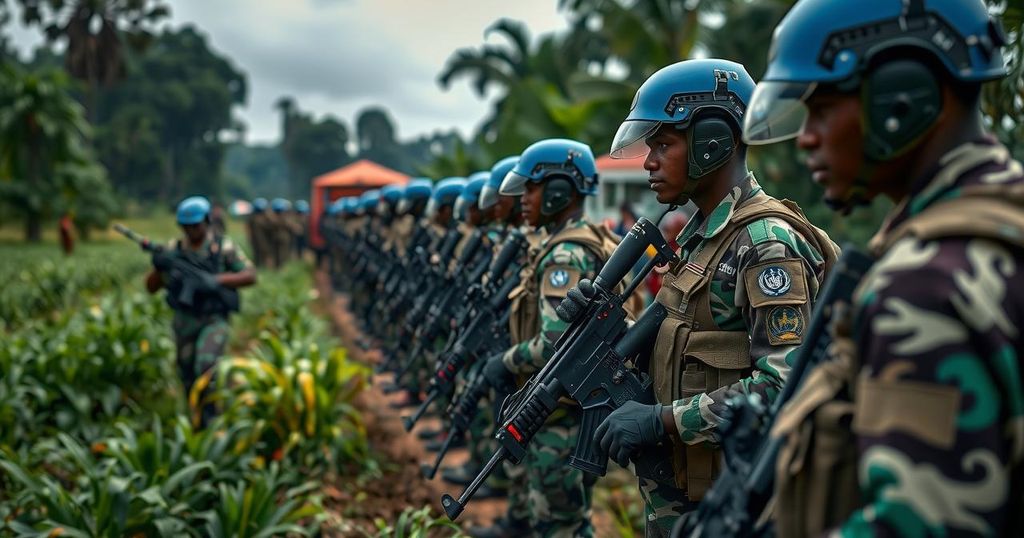The DRC government seeks the withdrawal of the U.N. peacekeeping force MONUSCO amid heightened frustrations and deteriorating security conditions. Despite desires for stability in the mineral-rich east, the presence of numerous armed groups, including the Rwandan-backed M23, complicates efforts for peace. Increasing violent protests and an unclear withdrawal timeline further exacerbate fears of a security vacuum impacting millions of displaced civilians. Additionally, the geopolitical stakes surrounding mineral resources complicate international involvement, hindering effective resolution to the ongoing violence.
The Democratic Republic of the Congo (DRC) seeks to expel the long-standing United Nations peacekeeping force known as MONUSCO due to ongoing frustrations with its presence, even as security conditions worsen in its mineral-rich eastern regions. While the Congolese government desires stability to protect its interests in valuable minerals, the security environment remains precarious, with numerous armed groups operating, including those supported by neighboring Rwanda. Tensions between Congolese and Rwandan forces have escalated despite recent ceasefires, leading to increasing violence against civilians and displacement.
Disillusionment with MONUSCO has surged among Congolese citizens, who previously viewed the peacekeepers as a source of hope. Violent protests have erupted against the U.N. force as many citizens feel betrayed by its inability to provide adequate protection. Compounding this issue is a growing belief that the U.N. withdrawal would create a security vacuum, exacerbating an already dire humanitarian situation for millions of internally displaced persons in the DRC.
The involvement of international players, particularly in mineral extraction, adds complexity to this conflict. The DRC is a significant supplier of cobalt and tantalum, crucial for technology industries. Militants like the M23 benefit from illegal mining operations, which contribute financially to their campaigns against the DRC government. Furthermore, geopolitical interests surrounding mineral resources often hinder meaningful international intervention, leaving the Congolese population to navigate threats largely on their own.
The situation in the Democratic Republic of the Congo is shaped by a long-standing history of conflict exacerbated by the nation’s wealth of natural resources, particularly in the eastern regions rich in minerals such as cobalt, gold, and tantalum. The presence of armed groups seeking to control these resources has led to violence, instability, and widespread humanitarian crises. The U.N. peacekeeping mission MONUSCO was established to restore peace, but growing dissatisfaction among the local population and government calls for withdrawal have raised concerns about the potential implications for security and governance in the region. Additionally, the involvement of Rwanda and other regional players further complicates the dynamics of the conflict, as external interests often intersect with local grievances.
The push by the DRC government to remove U.N. peacekeepers highlights the critical tension between national aspirations for sovereignty and the harsh realities of ongoing violence and displacement. MONUSCO’s presence is viewed with increasing skepticism amidst rising local frustrations. As the stakes grow higher with international mineral interests interwoven in the conflict, the potential for a security vacuum following the peacekeepers’ withdrawal poses serious risks for the civilian population. Future peace and stability in the DRC hinge on a delicate balance of addressing internal tensions while navigating external pressures guiding mineral exploitation and regional power dynamics.
Original Source: www.voanews.com






